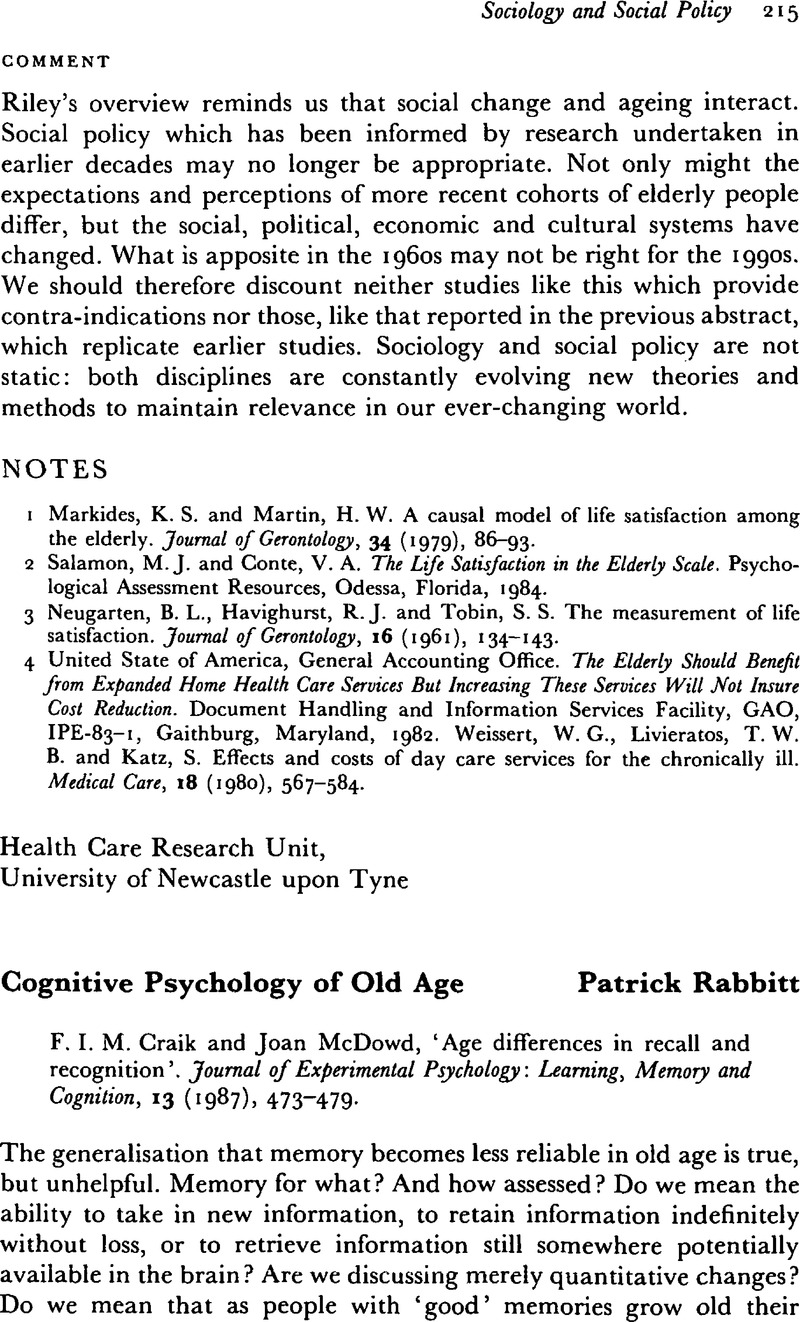No CrossRef data available.
Article contents
Cognitive Psychology of Old Age
Published online by Cambridge University Press: 14 November 2008
Abstract

- Type
- Abstracts
- Information
- Copyright
- Copyright © Cambridge University Press 1988
References
NOTES
1 Craik, F. I. M. and Byrd, M. Age and cognitive deficits: the role of attentional resources. In Craik, F. I. M. and Trehub, S. (eds), Aging and the Cognitive Process. Plenum Press, New York, 1982, pp. 191–211;CrossRefGoogle ScholarRabinowitz, J. C., Craik, F. I. M. and Ackerman, B. P.A processing resource account of age-differences in recall. Canadian Journal of Psychology, 36 (1982), 325–344.CrossRefGoogle Scholar
2 Zacks, R. T., Hasher, L., Daren, B., Hamm, V. and Attig, M. S.Encoding and memory of explicit and implicit information. Journal of Gerontology, 42 (1987), 233–245.CrossRefGoogle ScholarPubMed
3 Hess, T. M. and Slaughter, S. J.Specific exemplar retention and prototype abstraction in young and old adults. Psychology and Aging, 1, 3 (1986), 202–207;CrossRefGoogle ScholarPubMedBurke, D. M. and Peters, L.Word associations in old age: evidence for consistency in semantic encoding during adulthood. Psychology and Aging, 1, 4 (1986), 283–292.CrossRefGoogle ScholarPubMed
4 Hess, T. M., Vandermass, M. O., Donley, J. and Snyder, S. S.Memory for sex-role consistent and inconsistent actions in young and old adults. Journal of Gerontology, 42 (1987), 505–511.CrossRefGoogle ScholarPubMed


